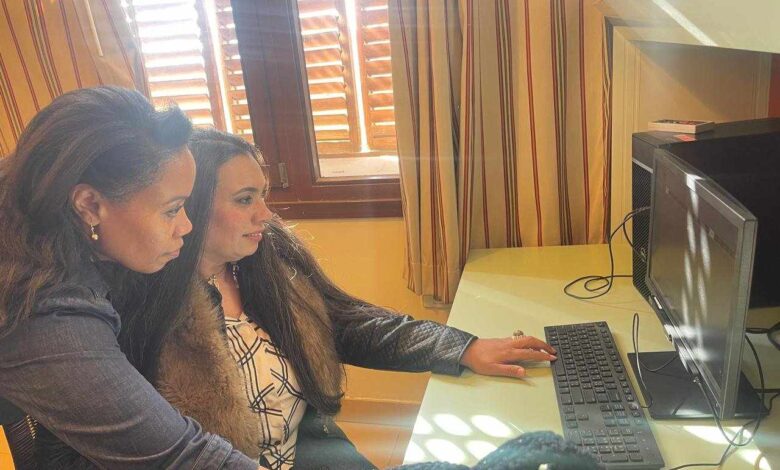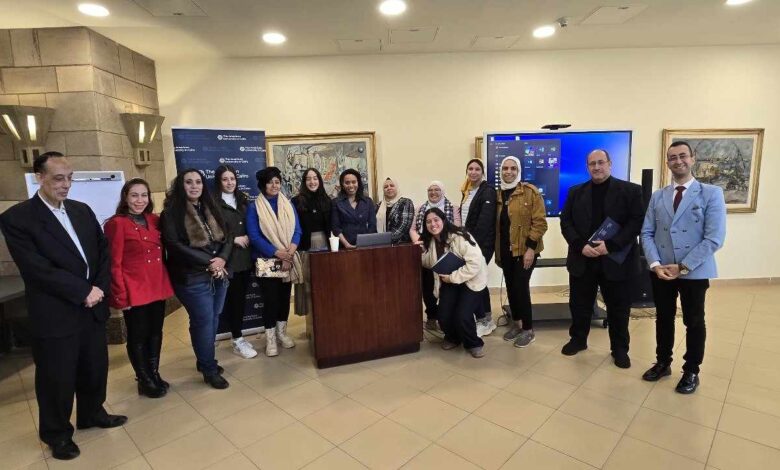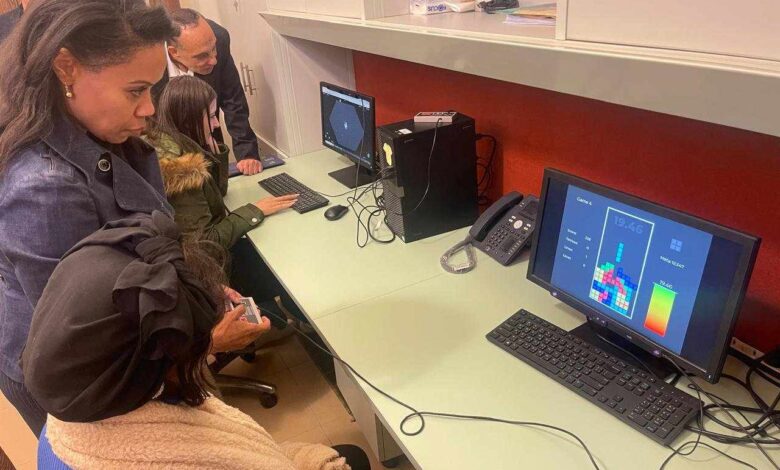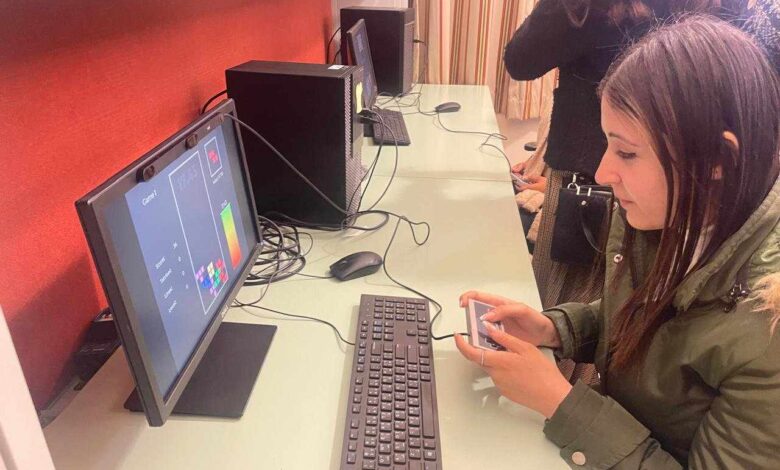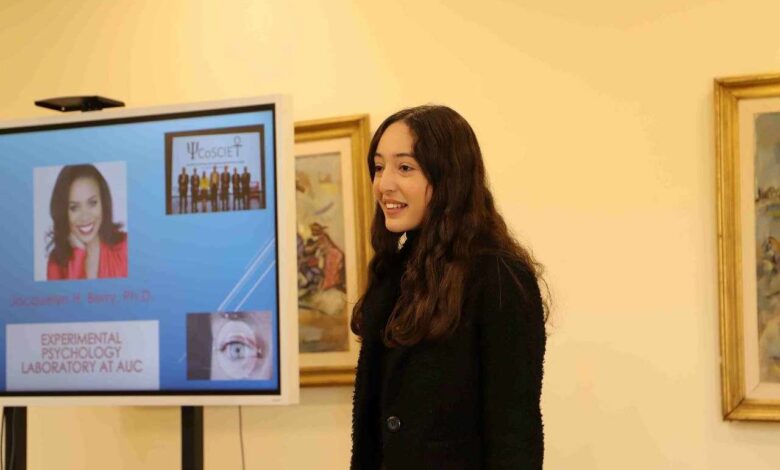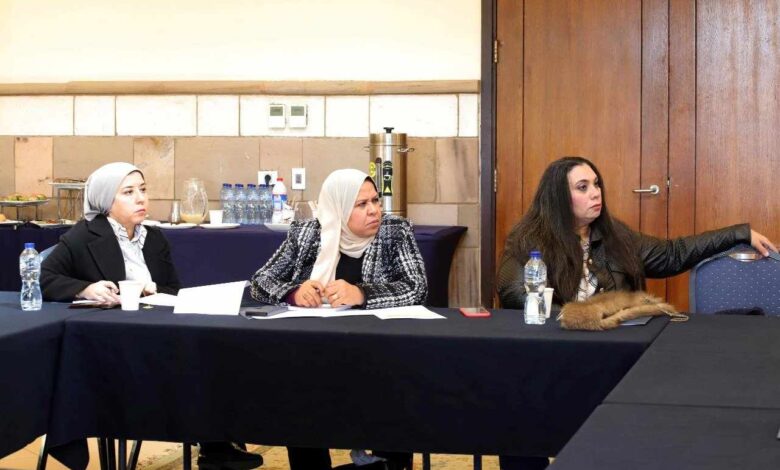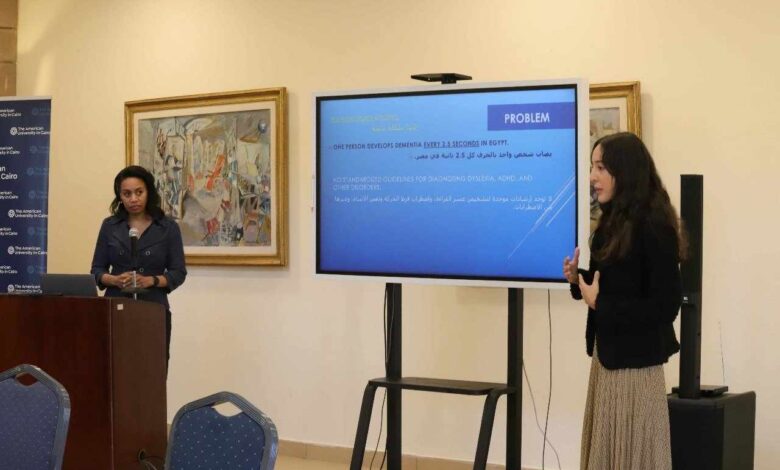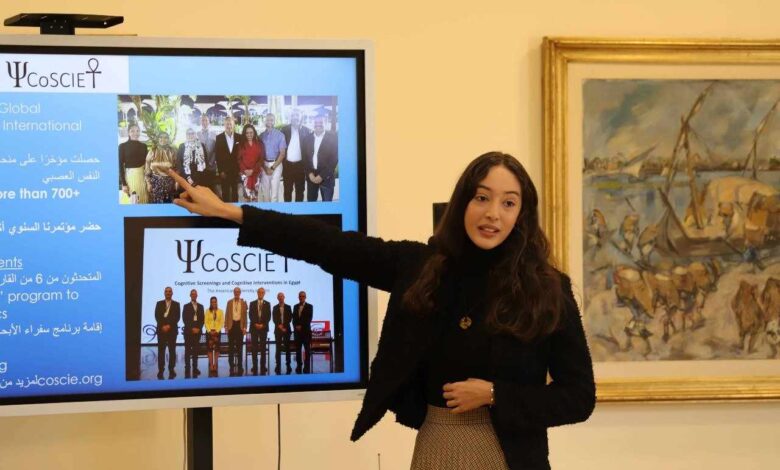AUC PROFESSOR JACQUELYN BERRY DISCUSSES EGYPT’S FIRST EXPERIMENTAL PSYCHOLOGY LAB AT “FACULTY AT THE FOREFRONT” SERIES
University in Cairo (AUC) kicked off this year’s Faculty at the Forefront series with a session featuring Jacquelyn H. Berry, assistant professor in the Department of Psychology, who discussed the University’s newly launched experimental psychology laboratory—the first of its kind in Egypt.
The lab takes an unconventional approach to cognitive science research, using video games and eye-tracking technology to analyze cognitive functions. This innovative method allows researchers to assess attention, perception, memory, learning, and language in a way that overcomes common challenges associated with traditional paper-based cognitive assessments.
By tracking eye movement while participants play video games, Berry’s research provides a more natural and culturally adaptable way to diagnose cognitive functions, addressing issues that arise when translated tests fail to resonate with Egyptian patients.
“When people think of psychology, they tend to focus on everything that goes wrong with the brain –– depression, anxiety, and typical disorders –– that they take for granted everything that goes right, like all of the amazing things we do every day, from split-second decisions when driving a car or handling multiple tasks at once,” says Berry. “Our brain is juggling so much information, and we only notice when things go wrong because the brain gets it right 99% of the time.
That’s why visual illusions and 3D movies are so much fun because, somehow, we can trick this amazingly reliable organ.”
Since its launch last year, the lab has already hosted more than 100 participants in various studies and engages a dozen graduate and undergraduate research assistants each semester.
“Everyone gets enriched,” Berry explains. “Students get hands-on experience conducting research, participants usually get some bonus credit towards their classes, and anyone involved is exposed to the unique research we are doing at AUC.”
Beyond AUC, Berry actively shares her academic expertise with institutions across Egypt, including several public universities. Through these collaborations, she is not only advancing cognitive science research but also contributing to AUC’s mission of community engagement by helping local institutions build research capacity in experimental psychology.
Berry’s research approach is unique, as she employs video games to observe cognitive functions through computer-based tasks, particularly using the game Tetris. The game collects more than 100 different underlying metrics to measure human performance, including eye-tracking.
This method allows for more accurate assessments compared to conventional tests, which often lose effectiveness when translated from foreign languages. Many patients struggle with these traditional assessments in clinical settings because they cannot fully relate to the tone and phrasing, leading to potential misdiagnoses.
With the eye-tracking technology at AUC’s experimental psychology lab, Berry can closely trace what’s happening in the brain from an executive function perspective.
“Take Arabic-English speakers, for example,” says Berry. “If you’re a native Arabic speaker and you’re speaking to me in English, you’re actively suppressing Arabic because you know that I’m not going to understand it very well.
But if you go home and spend time with, say, your grandparents, you’re going to suppress all the English that you use. That ability to suppress one language and use the other is what we call executive function, and it affects the way we process information and manage everything we do.
People with high executive function are better at all tasks related to inhibiting things they don’t need right now. It’s also protection against dementia. So bilingual speakers are less likely to develop Alzheimer’s disease when they get older.”
Berry highlighted the potential of AI in accelerating the process of skill acquisition.
“Now we’re looking at AI and how that can shorten the learning curve, where people go from not knowing how to do something to being an expert at it and all the different stages in between. My research examines if we can jump that curve a little bit with the help of AI learning tools. That’s what I’ve been doing with Tetris.”
Moving forward, Berry hopes that the lab will draw in people of all ages for testing.
“My goal is to increase our sample population so we can better understand cognitive functions across age groups,” she says. “I want to continue with high-level eye-tracking research to enhance our baseline tests on cognitive functions, such as the types of tests we use to uncover dementia and Alzheimer’s; and take our AI research to the next level to understand how people learn new tasks, both in Tetris and outside of Tetris.”


